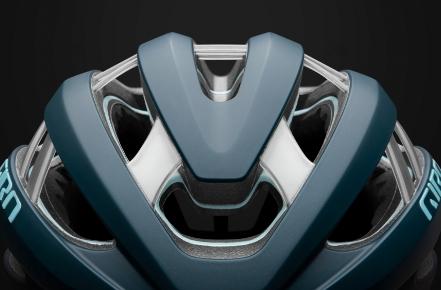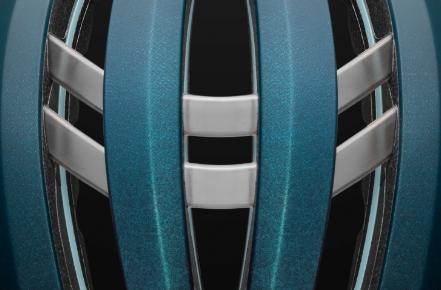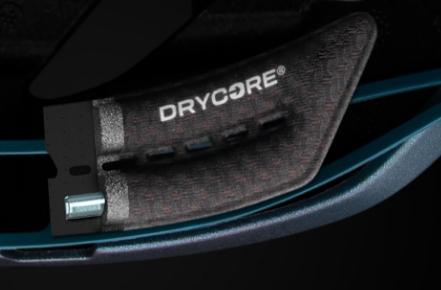- News
- Reviews
- Bikes
- Components
- Bar tape & grips
- Bottom brackets
- Brake & gear cables
- Brake & STI levers
- Brake pads & spares
- Brakes
- Cassettes & freewheels
- Chains
- Chainsets & chainrings
- Derailleurs - front
- Derailleurs - rear
- Forks
- Gear levers & shifters
- Groupsets
- Handlebars & extensions
- Headsets
- Hubs
- Inner tubes
- Pedals
- Quick releases & skewers
- Saddles
- Seatposts
- Stems
- Wheels
- Tyres
- Tubeless valves
- Accessories
- Accessories - misc
- Computer mounts
- Bags
- Bar ends
- Bike bags & cases
- Bottle cages
- Bottles
- Cameras
- Car racks
- Child seats
- Computers
- Glasses
- GPS units
- Helmets
- Lights - front
- Lights - rear
- Lights - sets
- Locks
- Mirrors
- Mudguards
- Racks
- Pumps & CO2 inflators
- Puncture kits
- Reflectives
- Smart watches
- Stands and racks
- Trailers
- Clothing
- Health, fitness and nutrition
- Tools and workshop
- Miscellaneous
- Buyers Guides
- Features
- Forum
- Recommends
- Podcast
TECH NEWS
 2023 Giro Aries Spherical Mips helmet hero
2023 Giro Aries Spherical Mips helmet heroGiro launches Aries Spherical — "the lightest and coolest helmet ever"
Giro has launched a new lightweight Aries Spherical helmet to its range, claiming it is the lightest, coolest and most compact helmet ever made with Spherical technology.
> Best cycling helmets 2023 — plus how to choose the right helmet for you
The Aries has a host more features than the Aether, which was Giro’s previous benchmark for a premium road racing helmet, and although the Aether was already ranking pretty well, the Aries takes things further. Claiming to offer a five per cent lighter weight, a four per cent reduction in aerodynamic drag and over two per cent better cooling, this helmet is aiming to take performance to another level.
Giro has not neglected safety at the cost of performance gains, though. The brand claims the Aries is now ranked as the number one helmet in reducing head injuries by Virginia Tech, with the university's helmet lab having built a solid reputation for its independent testing of helmets for sport. At the time of writing, the top-rated cycling helmet on the Virginia Tech website is a Specialized Tactic, but we'd expect that to be updated soon to reflect Giro's claims.
"A new high-end road helmet from Giro always is big news, but the Aries Spherical is like nothing before. We’ve been leading helmet science for almost 40 years, and it’s all led up to a helmet that virtually disappears when you start riding yet manages to receive the best score Virginia Tech has ever given in their rankings of which helmets best reduce the risk of injury,” Peter Nicholson, Giro Brand Manager, said.
Like the Aether, the Aries features Giro’s proprietary Mips Spherical technology, which in essence means that the helmet is built of two separate parts that are connected by a ball-and-socket design. The layers, or Progressive Layering, as Giro calls it, means that each layer has a different purpose, with the tougher top layer taking the high-speed impact and the lower nanobead EPS protecting the head from low-energy bumps.
Giro has been using Spherical technology, which it has developed with Mips, on its premium road helmets for years, including the more aero-orientated Eclipse and Helios. An added benefit of the technology is that there is no plastic Mips frame inside, but the multi-directional impact protection is integrated into the helmet itself.
This is a very lightweight helmet, with a size medium tipping the scales at 265g (five per cent lighter than Aether) and as a result, it is best suited for climbing and warmer riding temperatures. Giro has added 24 wind tunnel vents to the lid, creating a very well-ventilated helmet. Inside the helmet, internal channels connect with Aries’ massive front and rear vents, which should create a path for cool air to flow over the rider’s scalp and exit the rear, taking excess heat with it.
The Aries features Giro's AURA II Reinforcement Arch, translucent and shatter-resistant support, which allows the helmet's open design as it reinforces the structure without adding bulk. And finally, if the vents aren't enough to keep your head cool, the brand-new DryCore brow pad should be very effective in keeping the sweat off your eyes and glasses.
The Aries is first and foremost a road racing helmet, worn for example by the women’s world tour Canyon-SRAM team, but it is also preferred by XCO riders such as Swiss Champion Alessandra Keller.
The Giro Aries Spherical retails for £289.99 / $300 / €320, and is available in six colourways and three sizes (S, M and L).
You might also like:
Latest Comments
- mark1a 1 hour 24 min ago
Still here, just showing a few signs of wear and tear. Hopefully still serviceable for some years to come.
- David9694 1 hour 26 min ago
Oxfordshire village building car crash near Witney...
- Secret_squirrel 1 hour 54 min ago
Has he fully recovered though, and will he ever?...
- Rendel Harris 2 hours 9 min ago
How can you know that you are "equally fearful" as "any female cyclist"? There is no possible way of quantifying such emotions and female cyclists...
- chrisonabike 2 hours 41 min ago
I think it would be fairer to blame the moon - as in "my client is a loony".
- Bungle_52 3 hours 4 min ago
Nice idea but Gloucestershire Constabulary are not interested as exemplified by this prvious NMOTD. Not only was there NFA for the close pass in...
- hawkinspeter 4 hours 36 min ago
I think black boxes are great for early detection of cognitive decline and/or sight problems. Someone's driving is going to become much less smooth...
- Bigtwin 5 hours 11 min ago
It's a fashion. https://guildford-dragon.com/shalford-driver-who-smashed-shalford-war-me...
- MTL Biker 5 hours 32 min ago
Robin Phans .....



Add new comment
3 comments
265g doesn't take the crown for the lightest helmet.
See Giro kept the same designer from 1999.
Remember when they used to be the don of bike helmets. Styling is gone.
So, not the coolest then.